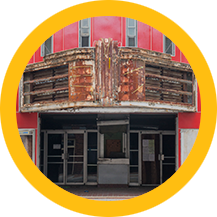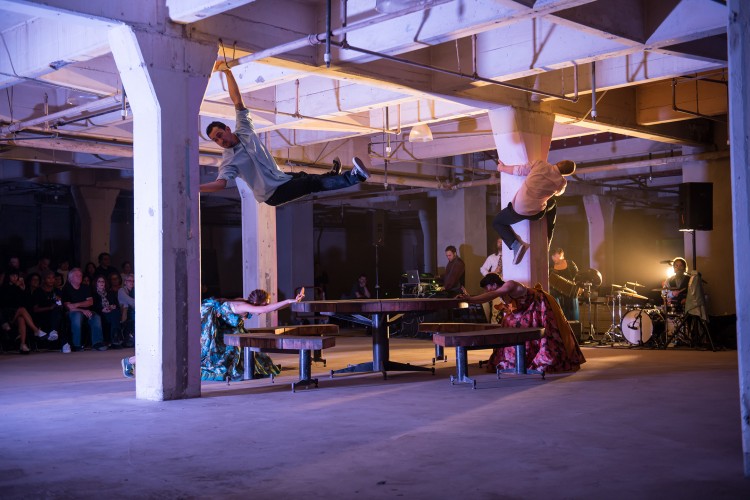The Path
There’s a new solution for arts and cultural organizations facing real estate challenges
The diagram below illustrates the path that an arts or cultural organization—in this case, the fictional Westside Dance Company—might follow to acquire permanent affordable space.
-

Westside Dance, an organization that presents live modern dance performances and offers arts education, is faced with a rent increase.
-

Westside Dance contacts the Real Estate Holding Company and is considered as a possible partner.
 Westside Dance undergoes a capacity assessment.
Westside Dance undergoes a capacity assessment. -

Deemed a solid candidate, Westside Dance works with the Real Estate Holding Company to identify an appropriate facility to buy.
-

Once a facility is identified, the Community Development Financial Institution (CDFI) and the Real Estate Holding Company work with Westside Dance to collect build-out or renovation estimates, and arrive at a final cost.
 The CDFI packages the project along with other projects, and submits it for the Federal New Market Tax Credits program as part of the financing package it can offer the arts organizations.
The CDFI packages the project along with other projects, and submits it for the Federal New Market Tax Credits program as part of the financing package it can offer the arts organizations. -

The City may become involved in issues such as: negotiating easements, considering properties for enterprise zones; applying economic development funds to the project; or facilitating the sale of air rights.
-

When the entire financing package is approved, the Real Estate Holding Company works with Westside Dance on the details of its financial package.
-

Westside Dance Company has an affordable, permanent home and activates the neighborhood through community engagement.

1-7 years
Over the course of seven years, Westside Dance implements a capital campaign and pays below market monthly payments to the Real Estate Holding Company while establishing equity.

7-10 years
At the end of seven to ten years, Westside Dance will have purchased the property at the original sale price and own a permanent home. The Real Estate Holding Company then recycles previously encumbered funds to buy the next property for an arts organization.

